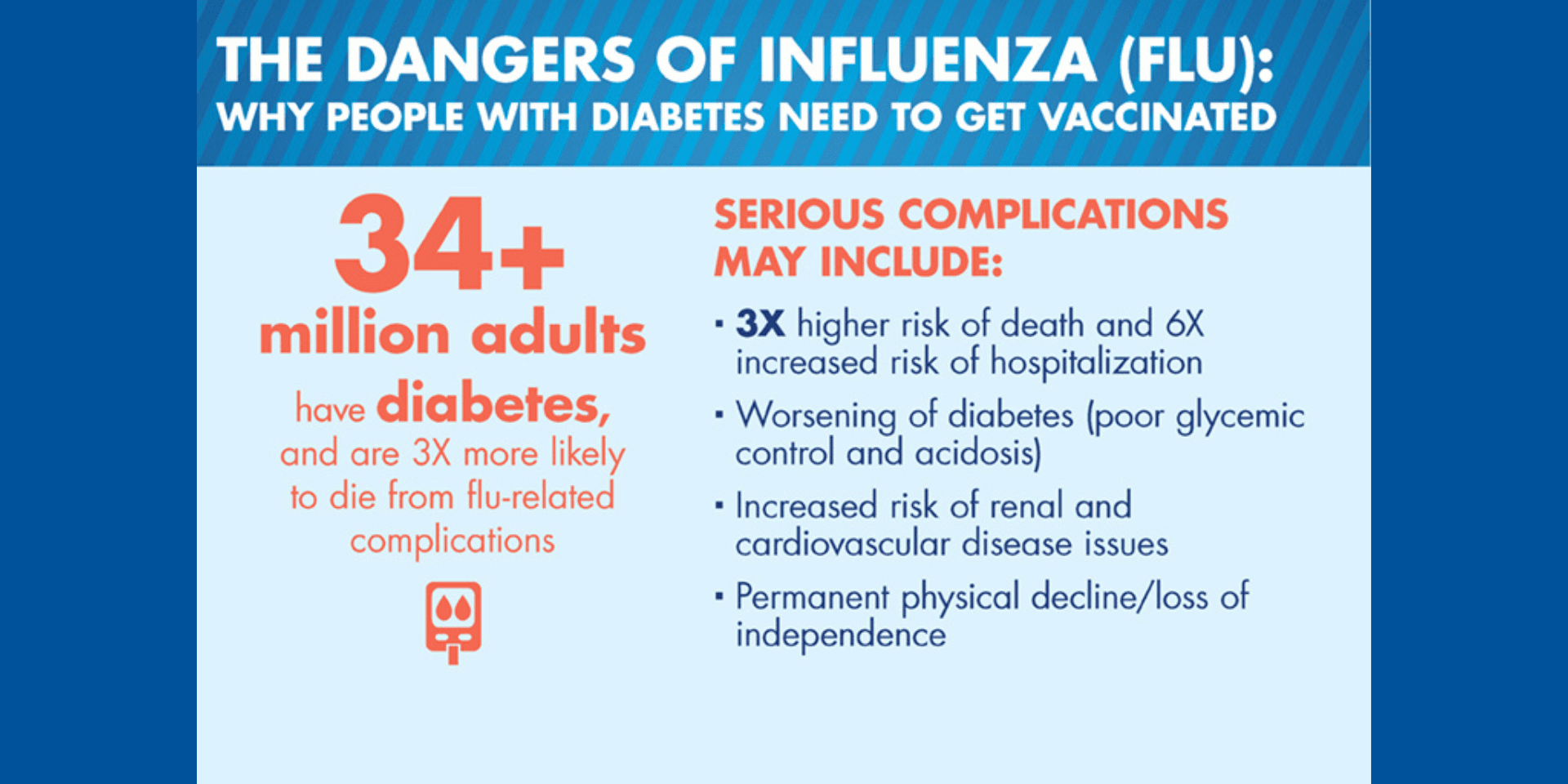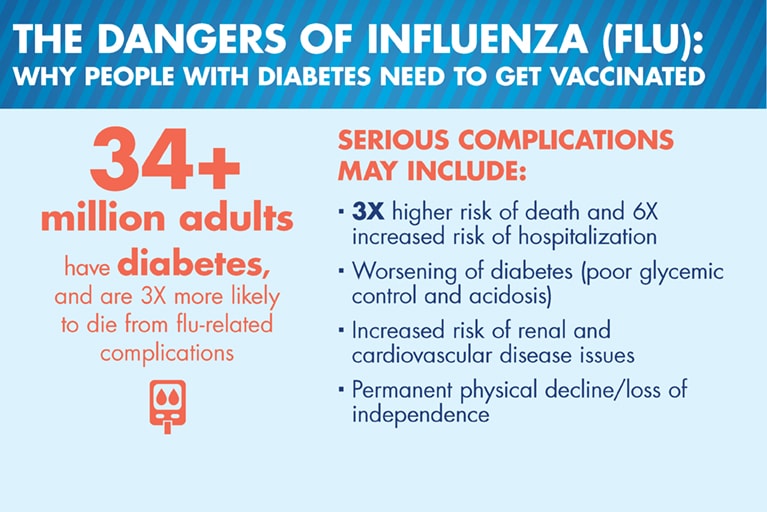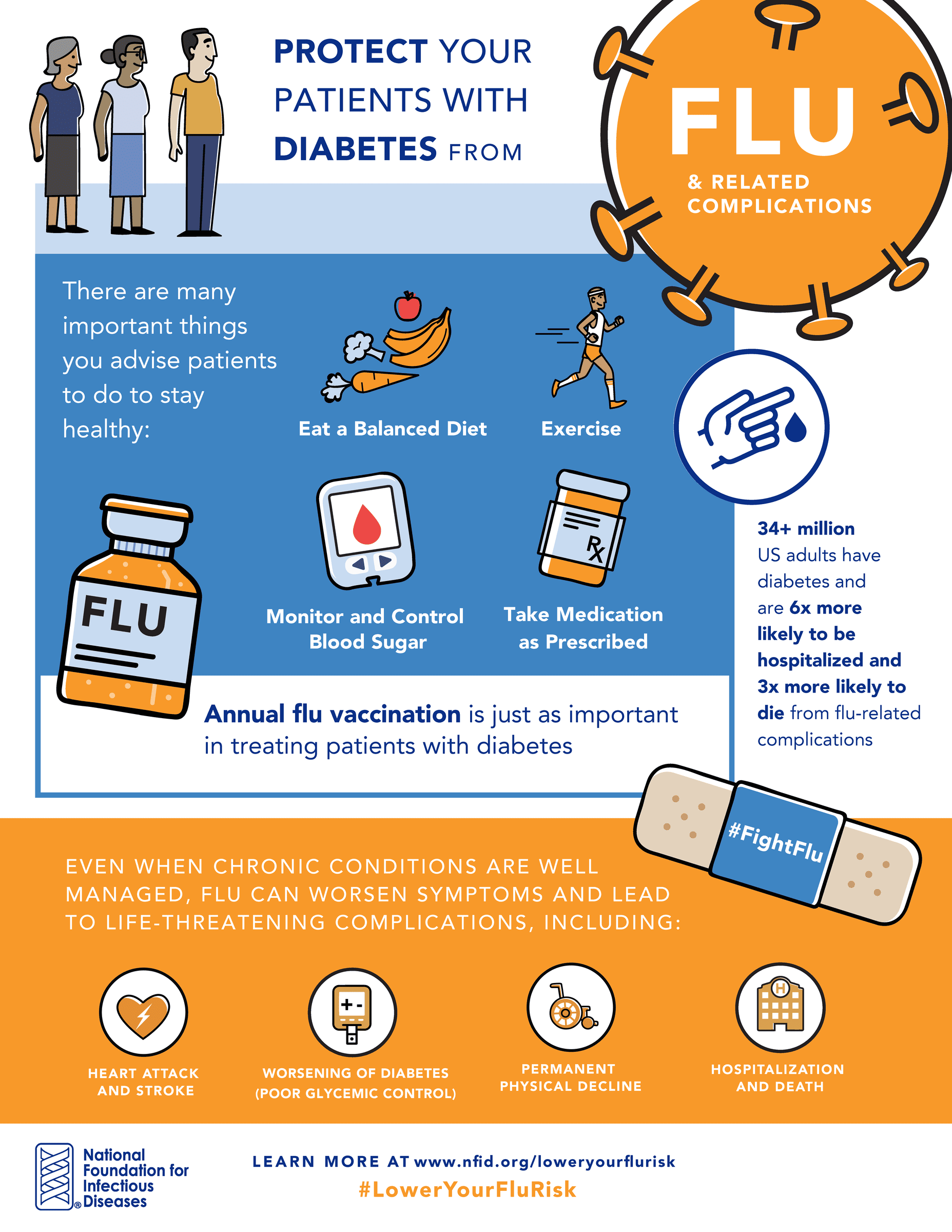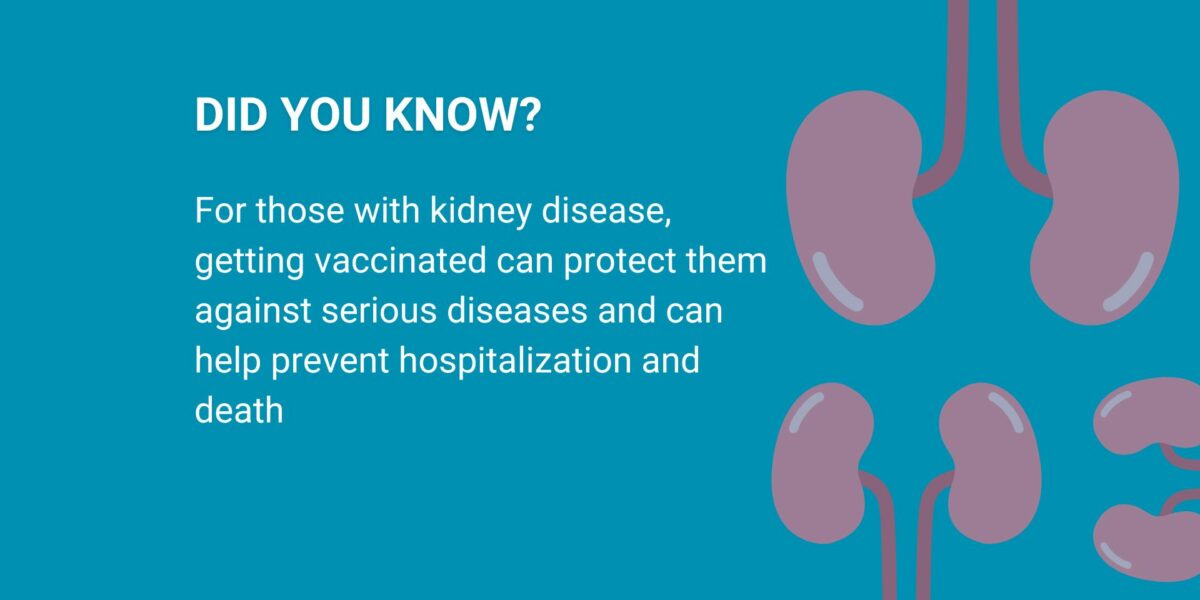
During National Diabetes Month (November), the National Foundation for Infectious Diseases (NFID) is highlighting the importance of annual influenza (flu) vaccination as a critical component of diabetes management.
In October 2020, NFID issued a new Call to Action, The Dangers of Influenza and COVID-19 in Adults with Chronic Health Conditions, detailing the risks of co-infection with flu and COVID-19 in adults with diabetes and other chronic health conditions, and the importance of flu vaccination during the 2020–2021 season. The goals of the report have been supported by more than 35 leading medical organizations, including the Association of Diabetes Care & Education Specialists, who is now urging stakeholders to prioritize flu vaccination for these vulnerable populations.
 Healthcare professionals who treat patients with diabetes know how important it is to advise them to take certain steps to stay healthy, including:
Healthcare professionals who treat patients with diabetes know how important it is to advise them to take certain steps to stay healthy, including:
- Eating a balanced diet;
- Exercising;
- Monitoring and controling blood sugar levels; and
- Taking medication as prescribed.
It is equally important to emphasize the need for annual flu vaccination in protecting their health. According to the Centers for Disease Control and Prevention (CDC), diabetes—even if well managed—can make it harder for the immune system to fight respiratory infections such as flu or pneumonia, putting patients at greater risk for serious complications. Studies show that people with diabetes are three times more likely to die and six times more likely to be hospitalized due to flu-related complications, compared to people without diabetes.
Flu-Related Complications for People with Diabetes
For people with diabetes, serious flu-related complications may include:
- Worsening of diabetes (poor glycemic control and acidosis)
- Permanent physical decline and loss of independence
- Hospitalization or even death
Despite these risks, a recent NFID survey found that nearly one out of four US adults who are at greater risk for flu-related complications (including people with diabetes and other chronic health conditions) do not plan to get vaccinated this flu season. The survey also found that 46 percent of high-risk individuals were unfamiliar with pneumococcal disease, and more than half (51 percent) report that they have never been advised to get vaccinated against pneumococcal disease.
NFID recommends that healthcare professionals inform patients with diabetes about the dangers of flu and pneumococcal disease and insist that they get vaccinated:
- Send reminders during the fall to ensure that patients schedule a vaccination visit to help prevent flu and pneumococcal disease
- If the practice does not offer vaccines, write a “prescription” for flu and pneumococcal vaccines to emphasize the urgency and importance of prevention
3 Tools to Help #LowerYourFluRisk
NFID has developed resources to help share the importance of annual flu vaccination and lower the risks of flu for people with diabetes including:
- 30-second public service announcement (PSA) and short social media videos
- Infographics for healthcare professionals and patients about the importance of flu prevention for those with certain chronic health conditions including diabetes
- Sample social media posts and graphics
View the flu & chronic health conditions toolkit at: www.nfid.org/loweryourflurisk.
This previous blog post from 2019 has been updated to reflect the increased urgency of influenza vaccination during the COVID-19 pandemic
To join the conversation and get the latest news on infectious diseases, follow NFID on Twitter using the hashtags #LowerYourFluRisk, #FightFlu, and #PreventPneumo; like us on Facebook; follow us on Instagram; join the NFID LinkedIn Group; and subscribe to receive future NFID Updates.
Related Posts

Vaccines and Heart Health: A Vital Connection
Heart disease can increase the risk of serious or fatal complications from respiratory diseases including COVID-19, flu, and RSV

3 Things You Need to Know about Kidney Disease and Vaccines
It is important for people with kidney disease to understand how critical vaccination can be for their health and well-being

5 Reasons Why Vaccines Are Good for Your Heart
For people with heart disease, getting vaccinated is as important to staying healthy as diet and exercise
